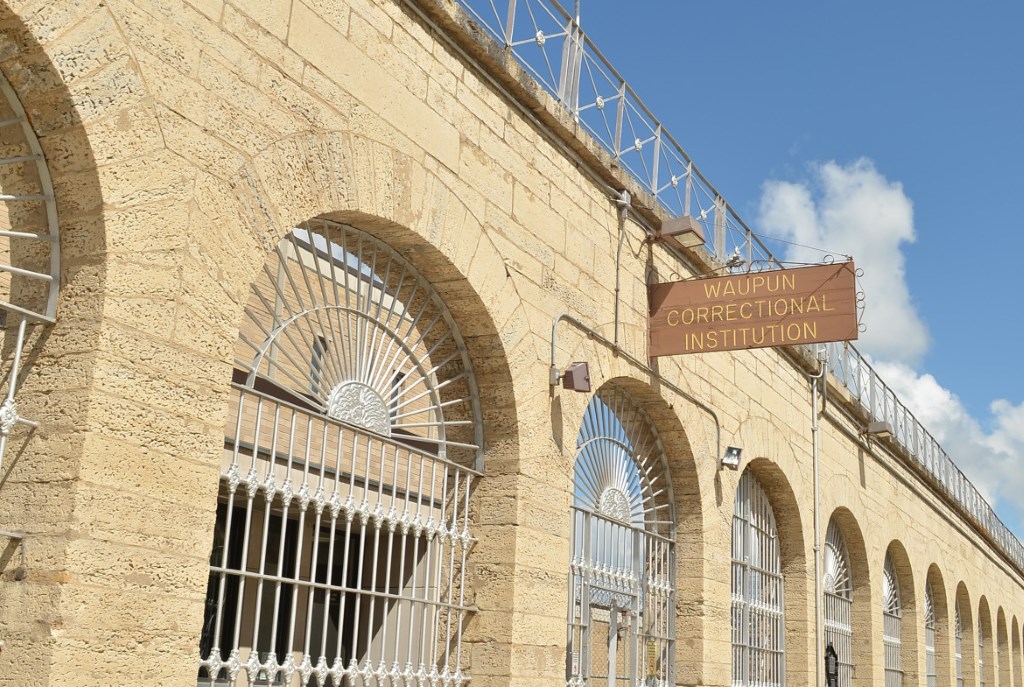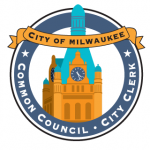Three Ways to Cut Cost of Prisons
A trio of proposed bills would save taxpayers money and help offenders.

Waupun Correctional Institution. Photo by Lauren Fuhrmann of the Wisconsin Center for Investigative Journalism.
Three proposals currently under consideration by state lawmakers have the potential to reduce the amount of money the state spends on corrections, keep people who commit minor crimes out from behind bars, and make it easier for people leaving prison or jail to get a job.
These developments to reduce the costs – financial and otherwise – of the state’s correction system are long overdue. For years, Wisconsin residents have been paying a high cost for the state’s over-reliance on prisons and jails. Part of the cost comes out of the pockets of taxpayers — nationally, only 11 states spend more per state resident than Wisconsin on corrections – and part of the cost is paid by communities, especially communities of color. Wisconsin locks up a larger share of African-American men than any other state, making it difficult for those individuals to get jobs after they are released, support their families, and make contributions to their communities. (For more on how the state’s overuse of jails and prisons has resulted in outsized costs for state residents, read our report “Prison Price Tag: The High Cost of Wisconsin’s Corrections Policies.”)
State lawmakers are considering:
1. Ending the exemption that forces lawmakers to vote on changes to criminal penalties without knowing the cost
Before lawmakers vote on legislation, state officials are required to prepare an estimate of how much the bill will cost in public money. However, legislative rules make an exception for bills that include changes in criminal penalties: On these bills lawmakers must vote in the dark, without any estimates on how future costs will be affected by their decisions.
Some lawmakers are proposing to end that exemption, by requiring an estimate of the cost of all bills that require public money to be spent. Only Democrats have signed on to the proposal at this point, but this change should appeal to fiscally conservative Republicans seeking to keep a tight rein on state spending, and anyone who believes government transparency is important.
Read the proposal here: Assembly Joint Resolution 101/Senate Joint Resolution 85.
2. Keeping people who commit minor crimes out of high-cost prison or jail
The state has the potential to save a significant amount of public resources by making additional investments in an approach that keeps offenders who commit minor crimes out of prison or jail, and instead treating their mental health and addiction problems.
Wisconsin’s Treatment Alternative and Diversions (TAD) program awards state grants to counties for programs that keep people with addiction and mental health issues out of jail and prison, and in effective treatment programs. Wisconsin’s TAD program has grown in recent years and has served as a model for other states seeking to reduce incarceration and corrections costs, but only about half of Wisconsin counties currently get grants from the state to support these alternatives.
A bipartisan group of lawmakers has proposed expanding Wisconsin’s TAD program, by spending an additional $2 million on treatment and diversion in each of the next two years. The bill is authored by two influential legislators: The Senate Majority Leader, Scott Fitzgerald, and the Assembly co-chair of the Joint Finance Committee, John Nygren.
The recent downgrade of state tax revenue estimates might make it less likely that proposals that cost money will make it through the legislature, but lawmakers should take the long view and remember that the TAD program actually saves money: each dollar the state invests in the TAD program saves $1.96 in public costs by reducing incarceration and lowering the risk that offenders will commit new crimes, according to a research study. Not all those savings accrue to the state budget, but it’s clear that expanding the TAD program is a smart investment that will pay dividends over time for Wisconsin’s communities, families, and the state as a whole.
Read the proposal here: Assembly Bill 657.
3. Removing a barrier to employment for people leaving incarceration
Getting a job can help individuals leaving incarceration avoid future involvement in the criminal justice system. But some employers ask about previous convictions early in the application process, and immediately disqualify anyone who has been previously incarcerated. That practice makes it harder for people leaving incarceration to become contributing members of their community.
By moving the question about criminal history to the end of the application process, employers can evaluate candidates on their merits, and job seekers can get the opportunity to respond to questions about their history. At that point, employers can decide whether or not to offer the job to the applicant. Moving questions about criminal history from the start to the end of the job application process is sometimes called “Ban the Box,” a reference to the yes/no checkbox asking about convictions on initial applications.
The legislature included a provision that would ban the box for state jobs in a bill that makes significant changes to how the state’s civil service system operates. The bill is now on the Governor’s desk, waiting for his signature or veto. There’s a lot not to like about the civil service changes in this bill, but banning the box for state jobs will give applicants with past convictions a better chance of supporting themselves and their families.
Banning the box on applications for state jobs is an important first step into removing barriers for employment, but there is more to do. Some states, such as our neighbors Illinois and Minnesota, ban the box for all employers, public or private.
Read the proposal here: Assembly Bill 373.
By knowing the true cost of policy changes, investing more in keeping people out of prison, and making sure individuals can get a job after they are released, Wisconsin can reduce taxpayer costs and increase the chance that people leaving incarceration can contribute to their communities. Lawmakers should pass all three of these proposals as an important first step to bringing down the cost of our corrections system.






















You could cut the cost of prisons even more by making fewer things illegal in the former Land of Liberty.